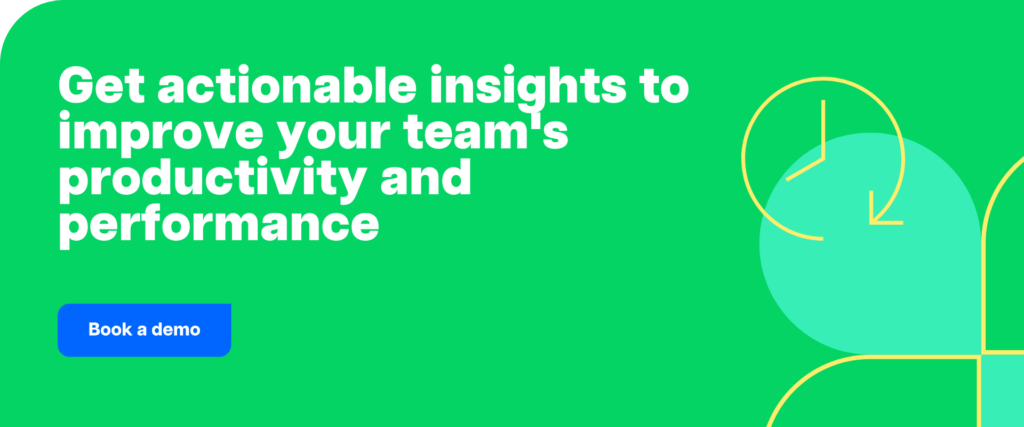It’s hard to imagine working hard for years and going above and beyond your goals all the while knowing that you’ll be promoted soon. Lastly, imagine that job going to someone who isn’t as good but is a manager’s favorite. Sadly, this happens way too often and shows how common the problem of unfair hiring practices is in businesses around the world. This blog post will talk about different kinds of unfair promotions, how they hurt people and businesses, and what we can do to stop them.
Table of Contents
- What is an unfair promotion?
- Impacts of unfair promotion practices
- Identifying unfair practices in your workplace
- Strategies for promoting fairness in promotions
What is an unfair promotion?
At its core, an unfair promotion is any way of moving people up that isn’t based on ability or clear rules that are applied to all applicants the same way. This might show up as favoritism, nepotism, or bias based on race, age, gender, or other traits that don’t matter.

Impacts of unfair promotion practices
When someone is promoted unfairly, it can have very deep and long-lasting effects on both the person and the company as a whole. To get a better idea of these benefits, read on:
Effects on people
- Decreased job satisfaction: People may not be happy with their jobs if they are not promoted based on their skills. They may think that their work is not valued or respected. If they think things aren’t fair, they might not want to do their job as much. This could make them forget about the goals of the company. If someone is unhappy at work, they might not care about the things they used to enjoy. They’re not as likely to finish chores and help the team.
- Mental health issues: If someone is promoted unfairly or sees someone else get promoted unfairly, it can make their mental health worse. It’s stressful to think that your hard work isn’t being seen, which can make you feel burned out. These kinds of unfair events can sometimes lead to more major mental health problems, like being sad or worried all the time.
- Reduced productivity: People who believe that the way they can get promoted is biased or unfair are likely to put in less effort and input at work. The team and department as a whole do worse because of this drop in productivity. It also hurts their chances of moving up in their job. Great employees who don’t use their full skills are bad for the business as a whole.

Organizational impacts
- Higher turnover rates: One of the most clear effects of unfair hiring practices is that too many people are leaving their jobs. People who think they are being ignored or treated unfairly are more likely to look for work somewhere else. Some businesses lose money when a lot of employees leave. This is because they have to pay to teach and hire new people, and they also lose the knowledge and experience that the employees have gained over the years.
- Poor morale: Appointments that aren’t fair can make team members fight with each other, making them angry and more likely to compete than work together. A lack of trust can spread through a company, making it a bad place to work where no one wants to work together or share new ideas.
- Potential legal challenges: A business could be sued if they use or accept unfair promotion practices. People can sue if they are promoted unfairly because of their race, gender, age, or another trait that is protected by the law. This court case takes a lot of time and work, and it costs money in the form of fees and settlements.
- Damaged reputation: In the digital age, a company’s image is more open and at risk than ever. Unfair practices can spread quickly and to a lot of people, which can hurt the company’s image with customers, people who want to work there, and people who already do. People may not want to work for you if you’re known for being unfair. You may even lose business because customers and partners will avoid brands that don’t fit with their values.
- Impact on diversity and inclusion: Unfair promotions practices can make it harder for a company to be more diverse and include everyone. Having a diverse staff can be hard to maintain if some groups feel like they are always being passed over for raises. Teams with a lot of different people are better at solving problems and coming up with new ideas. A company may find it harder to change and adapt if its teams aren’t diverse.
By knowing these effects, businesses can start to fix the problems that lead to unfair promotion practices and make the workplace more fair and open to everyone.
Identifying unfair practices in your workplace
To find out if your company is using unfair promotion practices, look for these key signs:
- Lack of transparency: It could mean that not all decisions are made fairly if the hiring process is not made clear or made public.
- Inconsistent criteria: Keep an eye out for promotions that don’t follow standard or previously stated success metrics.
- Repeated favoritism: Pay attention to whether some people keep getting promoted even though others have the same or better skills or performance.
- Secrecy in decision-making: Watch out if information about why someone was promoted is kept secret without a good reason.
- Issues raised by employees: Pay attention to the complaints that many employees have about what they see as unfair raises.
- Demographic patterns: Keep an eye out for ads that favor one gender, age group, race, or other group more than others.
- Unexplained career stagnation: Look for qualified people whose career seems to be moving very slowly or has stopped for no clear reason.
- Overlooking qualified candidates: Pay attention to whether highly qualified prospects are often passed over for less qualified ones.
Being aware of these signs can help you find and fix unfair promotion practices in your company.
Strategies for promoting fairness in promotions
Making sure that promotions are fair is important for keeping the workplace upbeat and creating a culture that welcomes everyone. Organizations can use these tactics that have been shown to work:
- Establish clear, objective criteria: Create and make it clear what the conditions are for promotions. These should be based on success metrics that can be measured and the qualifications that are needed for the job. Making sure that all employees understand these factors well can help keep things open.
- Document promotion processes: Keep careful records of all the choices that were made during the promotion process. This paperwork should explain why each candidate was looked at, why each choice was made, and how each candidate meets the set criteria. This not only makes sure that everyone is treated fairly, but it also gives people a way to defend their choices if they are asked to.
- Implement structured interviews: Structured interviews should be used to decide who gets the raise. Each candidate should be asked the same set of questions during these interviews. This makes sure that all candidates are judged by the same standards, which helps get rid of bias.
- Regular training on diversity and inclusion: All workers, but especially those who hire and promote people, should go to regular training sessions on diversity, inclusion, and unconscious bias. Being aware of how biases can affect choices can help reduce their effects.
- Promote a culture of feedback: It’s good for workers to be able to give and receive feedback on a regular basis for this reason. This should also include feedback on the promotion process itself, so workers can voice concerns or make ideas for how to make it better.
- Use promotion panels: Don’t let one person decide who gets promoted; instead, use a panel of people from different backgrounds who can give different points of view. This method can help even out people’s opinions and make decisions that are more fair.
- Monitor and evaluate the promotion process: Always make sure that the process for getting promoted is going as planned. Look into whether there are any patterns in who gets promoted that could point to unfair or biased practices.
- Encourage mentorship and development programs: Help workers get the skills and connections they need to move up by setting up mentorship programs that help all of them, no matter what their past is. Make sure everyone can get to these events, and actively push people from groups that aren’t well represented to join.
- Set goals for diversity: Make sure that the process for promoting people helps make the workplace more open and diverse while still promoting people based on their skills. These goals should be achievable, in line with the company’s main objectives, and a part of the overall HR plan.
- Be transparent about succession planning: In a public way, talk about succession planning at work. You should let your employees know what jobs are open and what they need to do to be considered for them.
Companies can make the workplace fair, open, and friendly by using these tips. This way, all workers can grow and move up in the same way. This helps the business keep good workers and build a strong, diverse leadership team that can move the business forward.
Conclusion
Getting rid of unfair ways of promoting people is important for creating settings that value fairness and equality. It means making sure that everyone has the chance to achieve based on their own skills and hard work. Let’s promise to be honest and fair, not just because the law says so, but because it’s the right thing to do.

Andy is a technology & marketing leader who has delivered award-winning and world-first experiences.


